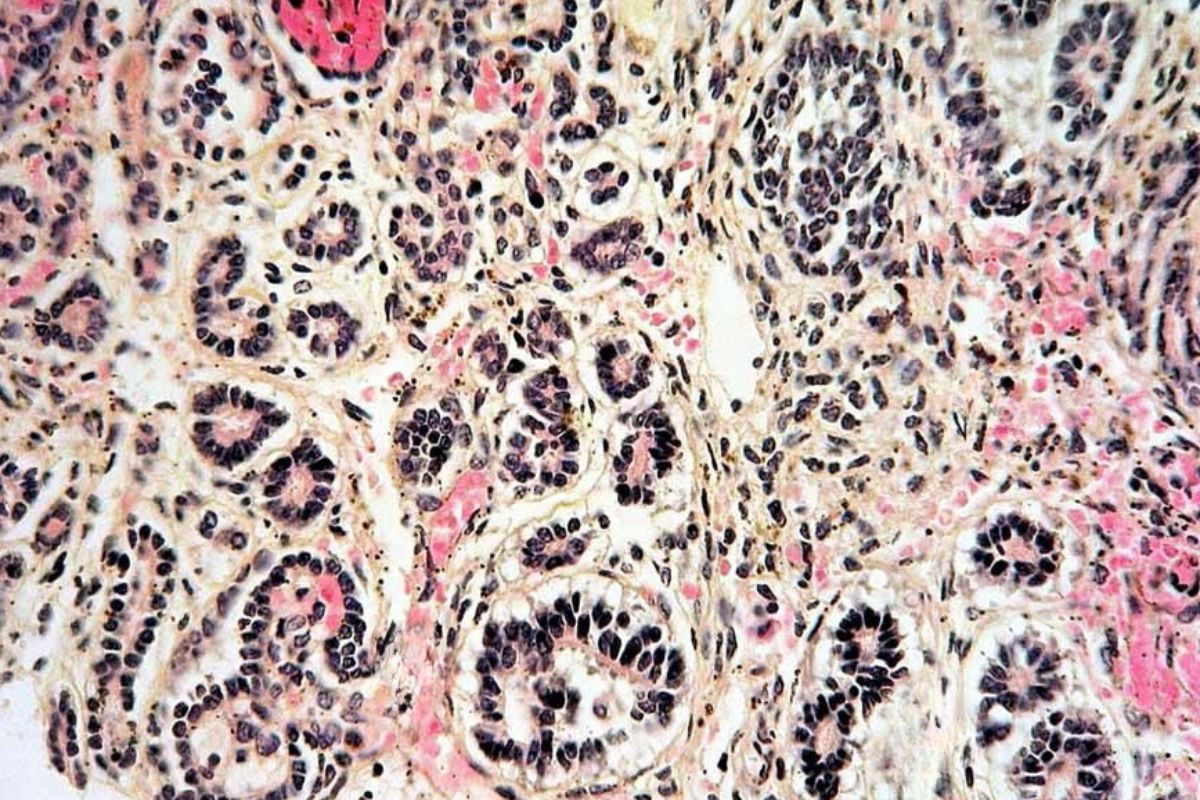
Perlman Syndrome (PS) is a rare genetic disorder that affects multiple parts of the body. Characterized by overgrowth before and after birth, it can lead to various health issues. Symptoms often include distinctive facial features, kidney problems, and developmental delays. Caused by mutations in the DIS3L2 gene, PS is inherited in an autosomal recessive manner. Early diagnosis and intervention are crucial for managing the condition. Understanding the complexities of PS can help families and healthcare providers offer better care and support. Here are 25 essential facts about Perlman Syndrome that shed light on this rare condition.
Key Takeaways:
- Perlman Syndrome is a rare genetic disorder causing overgrowth and various health complications. Early detection, multidisciplinary care, and emotional support are crucial for managing the condition effectively.
- Individuals with Perlman Syndrome may face kidney abnormalities, developmental delays, and respiratory issues. Treatment options include surgery, therapy, and medication to improve quality of life.
What is Perlman Syndrome?
Perlman Syndrome (PS) is a rare genetic disorder characterized by overgrowth before and after birth. It affects various parts of the body and can lead to several health complications. Here are some intriguing facts about this condition.
-
Perlman Syndrome is an autosomal recessive disorder, meaning both parents must carry the gene for a child to be affected.
-
The condition was first described by Dr. David Perlman in 1981.
-
PS is associated with mutations in the DIS3L2 gene, which plays a role in cell growth and division.
-
Babies with PS often have a larger-than-average birth weight and length.
-
Many infants with PS experience polyhydramnios, an excess of amniotic fluid during pregnancy.
-
PS can cause distinctive facial features, including a broad nasal bridge, deep-set eyes, and a prominent forehead.
Health Complications Linked to Perlman Syndrome
Individuals with PS may face various health challenges. Understanding these complications can help in managing the condition better.
-
Kidney abnormalities are common in PS, often leading to Wilms tumor, a type of kidney cancer.
-
Developmental delays and intellectual disabilities are frequently observed in children with PS.
-
Respiratory issues, such as difficulty breathing, can occur due to the overgrowth of tissues.
-
Some children with PS may have heart defects, including structural abnormalities.
-
PS can lead to feeding difficulties in infants, requiring special nutritional support.
-
Seizures are a possible complication, necessitating careful monitoring and management.
Diagnosis and Detection of Perlman Syndrome
Early diagnosis is crucial for managing PS effectively. Here are some ways it can be detected.
-
Prenatal ultrasound can sometimes detect signs of PS, such as polyhydramnios and overgrowth.
-
Genetic testing can confirm the presence of DIS3L2 gene mutations.
-
Physical examination at birth often reveals characteristic features of PS.
-
Imaging studies, like MRI and CT scans, help identify internal abnormalities.
-
Regular monitoring of kidney function is essential for early detection of Wilms tumor.
Treatment and Management of Perlman Syndrome
While there is no cure for PS, various treatments can help manage symptoms and improve quality of life.
-
Surgical intervention may be necessary to address structural abnormalities in the heart or kidneys.
-
Physical therapy can aid in improving motor skills and overall development.
-
Special education programs are beneficial for children with intellectual disabilities.
-
Medications can help control seizures and other symptoms.
-
Nutritional support, including feeding tubes, may be required for infants with feeding difficulties.
-
Regular follow-ups with a multidisciplinary team of specialists ensure comprehensive care.
Living with Perlman Syndrome
Living with PS presents unique challenges, but with proper support, individuals can lead fulfilling lives.
-
Support groups and counseling can provide emotional support for families affected by PS.
-
Awareness and education about PS can help reduce stigma and promote understanding.
Understanding Perlman Syndrome is crucial for providing the best care and support to those affected. Each fact sheds light on different aspects of this complex condition, helping to paint a comprehensive picture.
Final Thoughts on Perlman Syndrome
Perlman Syndrome, a rare genetic disorder, affects many aspects of a person's life. Early diagnosis and intervention can improve outcomes. Symptoms often include developmental delays, organ enlargement, and distinct facial features. Genetic testing confirms the diagnosis, while ongoing medical care helps manage symptoms.
Families dealing with Perlman Syndrome face unique challenges, but support networks and resources are available. Connecting with others who understand can make a big difference. Research continues to advance, offering hope for better treatments and understanding.
Raising awareness about Perlman Syndrome is crucial. The more people know, the better the support and resources for affected individuals and their families. If you or someone you know is impacted by Perlman Syndrome, reach out to medical professionals and support groups for guidance and assistance. Knowledge and community are powerful tools in navigating this rare condition.
Frequently Asked Questions
Was this page helpful?
Our commitment to delivering trustworthy and engaging content is at the heart of what we do. Each fact on our site is contributed by real users like you, bringing a wealth of diverse insights and information. To ensure the highest standards of accuracy and reliability, our dedicated editors meticulously review each submission. This process guarantees that the facts we share are not only fascinating but also credible. Trust in our commitment to quality and authenticity as you explore and learn with us.
